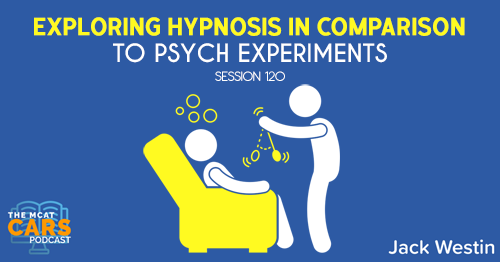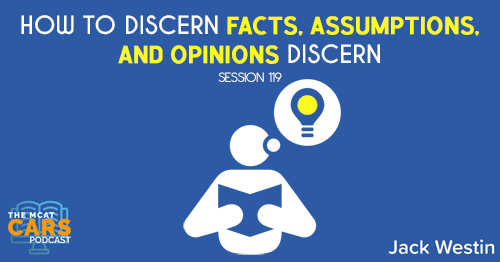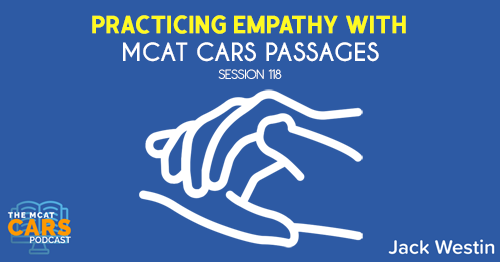Apple Podcasts | Google Podcasts
Session 101
We read a passage about how language and culture are commonly conflated. And we discuss what to do when you’re confronted with words you don’t know!
As always, I’m joined by Jack Westin from JackWestin.com. Check out all their amazing free resources including a free trial session of Jack’s full course to see how it’s like learning from Jack Westin himself.
Listen to this podcast episode with the player above, or keep reading for the highlights and takeaway points.
Link to the article:
https://www.scientificamerican.com/article/were-french-people-born-to-speak-french
Linguistic anthropologists have observed that people all over the world perceive languages, and speakers of those different languages, as fundamentally different from one another. When people listen to others’ speech, they hear discrete categorical boundaries even when differences in speech exist along a continuum. Our minds, and not just our ears, perceive these differences: we think of language X as being fundamentally different from language Y. From there, it is not a big leap to think of groups of speakers as being essentially different from one another: speakers of X are fundamentally different from speakers of Y.
You might assume that people are unconsciously conflating language with culture. After all, if someone speaks French fluently, they most likely come from France, where they were raised immersed in French culture. If that’s the case, people’s attitudes toward language could simply be a proxy for their attitudes toward perceived cultural differences across groups. But research suggests that people’s intuitions and misperceptions about the social life of language run much deeper than this, and manifest themselves in some surprising ways.
Indeed, people essentialize language. Psychological essentialism is the notion that particular groups of people are different because of some real, meaningful underlying essence that is present deep in their nature, and often biological in origin. So if you think that French speakers are fundamentally different from English speakers because of something about their essential nature or the biology they were born with—rather than the situational or cultural variable of having lived and been exposed to French rather than English—you are using essentialist reasoning. This common but misleading mental habit shapes our thinking in many domains.
What’s more, as a reflection of this essentialist thinking, it’s not uncommon for people to think that when you learn a new language, you may instantly learn a new set of beliefs, ideas or customs. As Harvard literature professor Marc Shell writes, “Many people maintain that they cannot change their language without ipso facto also changing their gods and themselves.” Brandeis University anthropologist Janet McIntosh calls this “linguistic transfer”—the idea that by speaking a new language, you—perhaps suddenly and somewhat mystically—take on the psychic properties of people who speak that language. She has studied this in Kenya, where some people report that language defines their selves, their rights, their land and their religion—and they say that learning to speak a new language could risk changing any of these.
[02:54] Paragraph 1, Sentence 1
Linguistic anthropologists have observed that people all over the world perceive languages, and speakers of those different languages, as fundamentally different from one another.
Jack says:
The author here is pointing out someone else’s point of view, which is that of linguistic anthropologists. Maybe the author agrees with this. We don’t know yet. But understand that this is someone else’s point for now. And that you’re different from one another because of your language.
[05:10] Paragraph 1, Sentence 2
When people listen to others’ speech, they hear discrete categorical boundaries even when differences in speech exist along a continuum.
Jack says:
Imagine, you speak English and you hear someone speaking Spanish or French or German. You may think that they are very different from you, even though their language, their grammar, and their vocabulary, all have the same consistency. And even though it’s a different language. Everyone has nouns and pronouns and adjectives. They all share the same style of grammar, more or less. But ultimately, we see through that, and we make up this kind of interpretation of those being different.
[06:42] Paragraph 1, Sentence 3
Our minds, and not just our ears, perceive these differences: we think of language X as being fundamentally different from language Y.
Jack says:
Obviously, English and Spanish, and English and French are not the same. But the author is going deeper than that and that’s what you have to catch. If you don’t catch that and you’re not accepting this deeper idea, then you will miss a lot of questions.
[07:24] Paragraph 1, Sentence 4
From there, it is not a big leap to think of groups of speakers as being essentially different from one another: speakers of X are fundamentally different from speakers of Y.
Jack says:
Again, it goes to this deeper idea that maybe we’re culturally very different or genetically different. But we’re different on a fundamental level. If anyone has traveled abroad, there’s always that personnel who try to look down upon other kinds of people. Maybe it’s tied to their language. Or maybe it’s because they interpret the language as being fundamentally different from what we normally see.
[08:42] Paragraph 2, Sentence 1
You might assume that people are unconsciously conflating language with culture.
Jack says:
The author here is coming in with a potential reason that we see these differences. This gives it a better perspective in that culture is something we can all understand.
[09:04] Paragraph 2, Sentence 2
After all, if someone speaks French fluently, they most likely come from France, where they were raised immersed in French culture.
Jack says:
Again, it’s just talking about that culture and what that looks like – language and culture being together. We’re making these assumptions that if they speak French, then they must have this French persona.
[09:26] Paragraph 2, Sentence 3
If that’s the case, people’s attitudes toward language could simply be a proxy for their attitudes toward perceived cultural differences across groups.
Jack says:
The author is saying that language is this extension to culture.
[10:14] Paragraph 2, Sentence 4
But research suggests that people’s intuitions and misperceptions about the social life of language run much deeper than this, and manifest themselves in some surprising ways.
Jack says:
The author here is setting us up for what’s to come. So research suggests that our intuitions and misperceptions are much deeper than just conflating language for culture. So it must be that this is a very fundamental thing. This is extremely tied to our biases and our perspectives.
[10:53] Paragraph 3, Sentence 1
Indeed, people essentialize language.
Jack says:
So it’s not just that we perceive them culturally different. We don’t know what “essentialized” exactly means, but let’s assume they’re going to describe it. So don’t get caught off by that word. Don’t just stop everything you’re doing and give up. Keep going there. They’re going to explain it.
“That's the point of these passages is they bring up new ideas and new points of views and they expand on those points of views.”Click To Tweet[11:55] Paragraph 3, Sentence 2
Psychological essentialism is the notion that particular groups of people are different because of some real, meaningful underlying essence that is present deep in their nature, and often biological in origin.
Jack says:
The author basically defined what essentialism means. It’s an idea and that they can test you on this idea. You have to make sure you understand that it’s deeper, not just culturally but genetically and biologically.
[12:32] Paragraph 3, Sentence 3
So if you think that French speakers are fundamentally different from English speakers because of something about their essential nature or the biology they were born with—rather than the situational or cultural variable of having lived and been exposed to French rather than English—you are using essentialist reasoning.
Jack says:
A large portion of the human race uses this essentialist reasoning as a way to continue our boundaries of who’s good and who’s bad.
[13:12] Paragraph 3, Sentence 4
This common but misleading mental habit shapes our thinking in many domains.
Jack says:
The word “misleading” is very important because now we know that although the author agrees this is happening, they don’t like it. The author’s attitude towards it is disproving of it. The author is not debating that it exists, but they’re creating this new terminology for us.
This is just the population at large. Imagine reading or studying Spanish, and all the sudden, you have these new ideas. You have these new concepts and, and ways of thinking, you just because you learned Spanish.
[15:19] Paragraph 4, Sentence 1
What’s more, as a reflection of this essentialist thinking, it’s not uncommon for people to think that when you learn a new language, you may instantly learn a new set of beliefs, ideas or customs.
Jack says:
This is just the population at large. Imagine reading or studying Spanish, and all the sudden, you have these new ideas. You have these new concepts and, and ways of thinking, you just because you learned Spanish.
'Don't bring in too much bias when you visualize. When you visualize, try to visualize it from the author's perspective.'Click To TweetLet’s read the sentence again to try to understand it from the author’s perspective. Imagine someone learning a new language. And there’s someone who notices that you just learned this new language. It could be Spanish. Then you may instantly learn a new set of beliefs, ideas, or customs. So try to stay true to the text when you visualize that’s my point.
[19:21] Paragraph 4, Sentence 2
As Harvard literature professor Marc Shell writes, “Many people maintain that they cannot change their language without ipso facto also changing their gods and themselves.”
Jack says:
There’s a double negative here so you can take both of them out. Basically, when you change your language, you change your gods and themselves. Now “gods and themselves” is this pie to culture sets of beliefs and customs. And that’s exactly what’s happening. The author is bringing this person up.
By the way, a Harvard literature professor, did you notice that? Because the author wants you to believe their point of view. They want you to believe that essentialism exists. Wouldn’t it be awesome if I brought in a person, a Harvard literature professor, who accepts this point of view and quotes them? That’s one way the author supports their point of view and that’s something that MCAT will test you on. They brought up Marc Shell to prove that essentialism exists.
[21:15] Paragraph 4, Sentence 3
Brandeis University anthropologist Janet McIntosh calls this “linguistic transfer”—the idea that by speaking a new language, you—perhaps suddenly and somewhat mystically—take on the psychic properties of people who speak that language.
Jack says:
Notice this is a different term, but it’s the same idea. Linguistic transfer is almost exactly essentialized language. They’re synonymous in this case and they’re just calling it something else.
This whole psychic property could be a little different but the author’s bringing this up to show you that there are other people who have the same idea. Maybe it’s not exactly the same idea. But it’s similar enough so that you’d believe it.
[22:46] Paragraph 4, Sentence 4
She has studied this in Kenya, where some people report that language defines their selves, their rights, their land and their religion—and they say that learning to speak a new language could risk changing any of these.
Jack says:
The author is giving an example of linguistic transfer. Either that it happens or that people are worried that it may happen and change who they are.
The MCAT will test you around whether or not this is a true idea. Obviously, it’s not a true idea because the author said it’s misleading. But the MCAT will also test you on whether this idea exists. Be very careful with reading the question. Be careful with what they’re referencing. So be sure you know the point and you understand the main idea. Make sure you understand the point the author’s trying to make, as well as the surrounding text that emphasizes this point, and the author’s opinion about this point. Then you’re going to get every question right.
“If you read too quickly, and you just find the point but you don't know the author's perspective, then you're going to be in trouble.”Click To Tweet[24:38] Main Idea
Everyone knows the topic is language. We actually understand it at a deeper level. But the main idea here is that when you learn a new language, you fundamentally become a different person. That’s whether it’s genetic, cultural, biological, or whatever. But you become a different person.
'Make sure you really get the main idea. You don't just have the topic.'Click To TweetLinks:
Link to the article:
https://www.scientificamerican.com/article/were-french-people-born-to-speak-french
SEARCH SITE
SEARCH SITE
LISTEN FOR FREE












